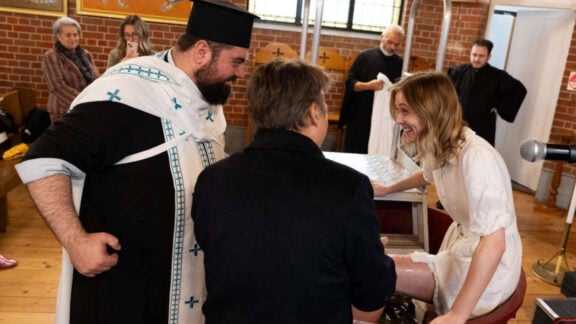For a while there, the running joke ping-ponging around those interested in Greek football was that this Superleague season would probably have to wait for Christmas before kicking off.
Thankfully, that joke is no longer valid, as after much in-fighting and bickering, the Superleague has at last settled on a date best suited for kick-off.
This coming weekend, then, will find champion Olympiakos begin one more league defence against a resurgent PAOK, a Panathinaikos side overflowing with options and attacking verve and cup winners AEK Athens, who will field a two-time Premier League winner in their opening match against Xanthi.
Let’s rewind that last piece of information. A two-time Premier League winner. And just to add to that, he’d also got an FA Cup winner’s medal, a League Cup winners medal and 26 caps for England. Looking at it, it’s not really a honours list that usually gets you a ticket to the Superleague. But that’s exactly what’s happened with Joleon Lescott.
In one of the most intriguing transfers of the summer, the central defender (and sometimes reluctant left-back), who has turned out for four different Premier League sides, has opted to leave England and join the somewhat shaky and uneven ranks of the Greek Superleague. Arguably a fading force in England, and having just completed a fully disastrous season with now relegated Aston Villa, Lescott nevertheless should have more than enough left in the tank to deal with the strikers that he will face in Greece, if indeed he sees this particular adventure as anything more than just a paycheck.
At his best, the now 34-year-old Lescott was an astonishing footballing specimen. Possessing a physical presence that could scare away even the bulkiest of forwards, Lescott was an intelligent tackler, who despite his formidable size was more brain than brawn when dealing with offensive threats and who could also provide attacking options of his own, for any team that he played for. Α career total of 41 goals provides ample evidence of that, although his numbers have dropped significantly over the last three seasons while playing for WBA and Aston Villa.
One thing is for certain: Lescott’s prime years are behind him. They have been presented, played out and gone. There is nothing remotely bad about that as far as his connection to AEK Athens is concerned, or for the player himself. Had he been the Lescott of old, he would have easily found another Premier League contract, or even a lucrative Championship deal with one of the high-flyers looking to muscle their way into the Premier League next season. But the Lescott we saw trying to plug the many holes in the Aston Villa defence last season was a player struggling with his own inadequacies.
Granted, Villa were a team in alarming decline over a number of seasons, but in Lescott they clearly saw an individual that could marshal their defensive backline, a man with enough Premier League experience to lead. To bark out orders. To captain the good ship Villa away from relegation waters. That plan failed spectacularly. Aston Villa were relegated, playing some utterly awful football and their defensive performance was shambolic. At the heart of it all, due to his name and weighty CV, was Lescott.
The Villa fans turned on him due to some rather inappropriate social media posts (posting a luxury car that you have bought while the team is in freefall is probably not the greatest idea in the world) and he never turned the situation around.
Ultimately, Lescott is not a leader. He never was and chances are, he never will be. He wasn’t one at Wolves, he wasn’t one at Everton, at Manchester City, at WBA, certainly not at Aston Villa and he probably won’t be one at AEK Athens. A standout performer? Sure. A fan favourite? Possibly. But a leader? Unlikely.
A common mistake that Greek fans make is that they expect players that come from established leagues in Europe and beyond to somehow tower above everyone else like some kind of footballing Godzilla. In some cases, that is true. Think back to Rivaldo, Giovanni, Cisse, Melberg, Gamarra. All great players. All established professionals, masters of their position and natural leaders, through voice and action. But just because you come from Serie A, or La Liga or even the Premier League doesn’t mean you can instantly transform into a conductor. A star member of the orchestra maybe. But a conductor? Not so much. It just doesn’t work that way.
In Lescott, AEK Athens have taken a calculated gamble. They’ve invested in a player who is at a crossroads. Counting down the footballing clock, Lescott surely sees AEK as a step down, recognising that he can no longer compete at the high-tempo setting of the Premier League.
With the Europa League a fading memory after being bluntly shown the exit by an adequate St Etienne side, AEK know where they stand and Lescott does as well. He’s here to do a job: offer his defensive brain to coach Timuri Ketsbaia – a lover of defence-first football himself – form a potentially sturdy central defensive duo with Dmytro Chygrynsky and help an unsteady AEK side mount a rather unlikely championship challenge.
His experience and footballing brain should ultimately help Lescott to be the standout performer everyone in Greece expects him to be. As a sturdy section of the team’s spine, allowed to go about his duties while others hog the spotlight, Lescott could and should thrive. Just don’t ask him to lead. We can’t all be leaders. Nor should we.








